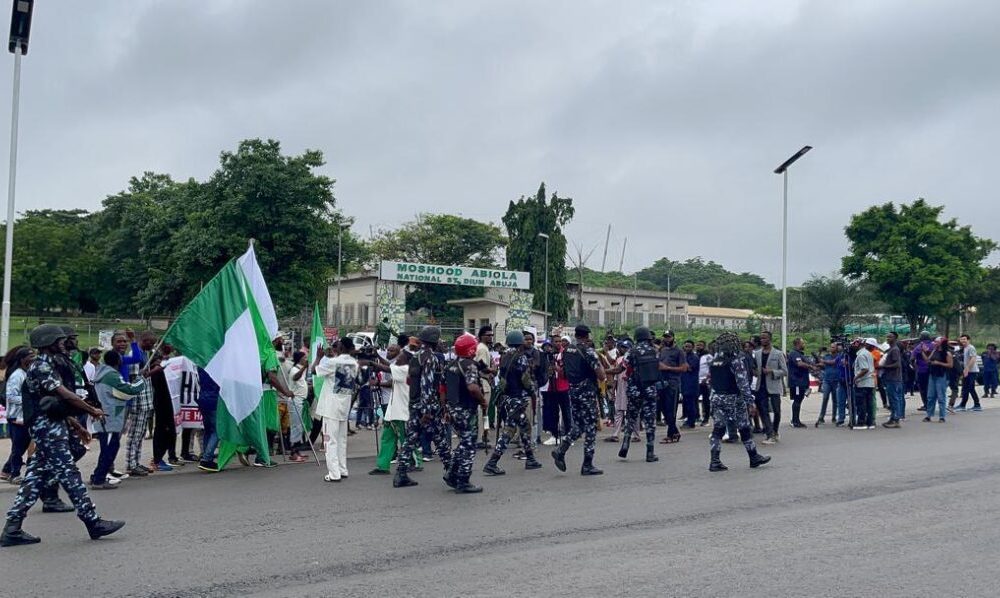Nigerian troops and police tightened security in Lagos and the capital Abuja on Thursday as they prepared for planned protests over the cost of living.
Africa’s most populous country is struggling with soaring inflation and a sharply devalued naira currency after President Bola Ahmed Tinubu introduced reforms a year ago that aimed to revive the economy.
Tagged #EndbadGovernanceinNigeria, the protest movement has won support with an online campaign among Nigerians who are battling with food inflation at 40 percent and fuel prices that tripled since Tinubu introduced his urgent reforms.
In Abuja, security forces blocked off roads leading to Eagle Square — one of the planned protest sites — while in Lagos, police and soldiers were placed at strategic points, including at the Lekki tollgate, where protests in 2020 ended in bloodshed.
Early turnout in the capital and in Lagos was slim, with only a few dozen protesters outside the national stadium in Abuja and police outnumbering the dozens more demonstrators in the Ikeja area of Lagos.
“Hunger has brought me out to protest,” said 24-year-old demonstrator Asamau Peace Adams outside the National Stadium in Abuja. “It’s all down to bad governance.”
A handful of protesters also gathered in the northern city of Kano, an AFP correspondent said.
On the eve of the protests, government officials had urged young activists to reject rallies and allow time for Tinubu’s reforms to take hold.
Many Nigerians are struggling with the high costs of food and transport and many people were also worried about insecurity around protests.
- Economic pain –
But protest leaders, a loose coalition of civil society groups, vowed to press on with rallies despite what they say were legal challenges trying to limit them to public parks and stadiums instead of marches.
The government on Wednesday listed aid it has offered to alleviate economic pain, including raising the minimum salary levels, delivering grains to states across the country and aid to the most needy.
“The government of President Tinubu recognises the right to peaceful protest, but circumspection and vigilance should be our watch words,” Secretary to the Federation of Government, George Akume, told reporters.
“Our appeal is that Nigerians should please pursue the path of peace, dialogue and collaboration.”
The last major protest in Nigeria was in 2020 when young activists took to the streets to rally against the brutality of the SARS anti-robbery squad in demonstrations that evolved into some of the largest in Nigeria’s modern democracy.
But the rallies ended in bloodshed in Lagos. Rights groups accused the army of opening fire on peaceful protesters, but the military said troops used blanks to break up a crowd defying a curfew.
Nigeria’s protests come as Kenya’s President William Ruto was forced to repeal new taxes and name a new cabinet after weeks of anti-government protests in the worst crisis in his almost two years in office.
In Uganda, officials also arrested dozens earlier this month after they took part in banned anti-corruption protests organised online by young activists inspired by Kenya’s rallies.

